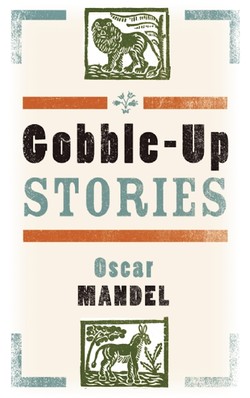Читать книгу Gobble-Up Stories - Oscar Mandel - Страница 3
На сайте Литреса книга снята с продажи.
ОглавлениеFOREWORD
Once upon a time I found a letter in my mailbox from a friend upbraiding me for offering him advice which he thought unethical. I had suggested that he mail the manuscript of a hopeless novel to two publishers at the same time. In his letter he invoked the moral majesties of Moses, Socrates, Spinoza, and Kant. He and they were right, my advice had been naughty (if wise), but the heaviness of the artillery deployed against my insignificant target amazed me. Out of this amazement, and the blameworthy amusement that followed, grew, I don’t know why—yet with the rapidity of a mushroom after the rain—the fable “How God Learned What Measure Is.” I could, I suppose, explain that having been brought up in Belgium speaking French, I inevitably knew and loved my La Fontaine. But La Fontaine in particular, and fables in general, were far from my conscious mind on the day, indeed in the year, my friend’s letter arrived. Hence I must fall back on that convenient darkness, the subconscious mind, a mental tunnel where I see nothing, though a well-lit fable emerges at the exit.
Even more mysteriously, once I had composed my little apologue, a troop of others came running as if at a signal—as if they had been lying in wait for years in that darkness. I remember this, decades later, as one of the stranger circumstances of my life. For a few months the stories lined up, so to speak, urging my pencil to materialize them. A dozen stragglers came later; in afteryears a few others; a pair fairly recently. Thus the collection grew from thirty-three (the original Gobble-Up Stories) to forty-six fables.
This augmented edition, published here for the first time in English, also brings to light the sometimes deep revisions I made on many if not most of the original thirty-three. Indeed, revision has been the one task my diminished imagination has always been up to. I continued and have never ceased to revisit most of these texts, and, like a fond parent who cannot let his children go, I have kept trying to comb out their imperfections and to brush up their attractions.
Why “Gobble-Up”? The word can be taken as alluding to the pleasure (the presumed pleasure) of “consuming” these fables, but I meant it more, at the time I thought it up, as an eat-or-be-eaten reference to the cruel world with which, alas, so many fables must cope.
Three of these gladly admit to a clear pedigree. One is my variant of the famous tale of the Crow and the Fox—Le Corbeau et le Renard—the one every child and adult in the French-speaking world knows by heart. “The Cock Who Made the Sun Rise” goes back to Edmond Rostand’s Chantecler (his extravagant comedy of roosters), though Rostand had it from Aesop or Phaedrus, I don’t know which. And the source of “In the Belly of the Whale” is an obscure political pamphlet by August von Kotzebue, which I read while writing a book on that singular contemporary of Goethe. If there are predecessors for some of the other fables, I have forgotten what they are. Be that as it may, even the three stories I have named are original in the ordinary sense of that word. They are not “creative imitations” of their models, but new fables inspired by and rooted in old ones.
Plato tells us that Socrates was about to versify Aesop before his fate overtook him. This is proof enough, I think, that fables are serious literature. The well-turned traditional apologue, as practiced by ever so many writers since antiquity, is a means of conveying grave and often cruel truths without torturing its readers. It does not lose substance because of its brevity; it does not forgo significance by inviting cows and baboons to take the podium. I do, however, admit to a touch of vexation toward the world for not quite believing in our severity. It is, of course, a forgiving vexation, for who is more temperately aggrieved than a fabulist?
